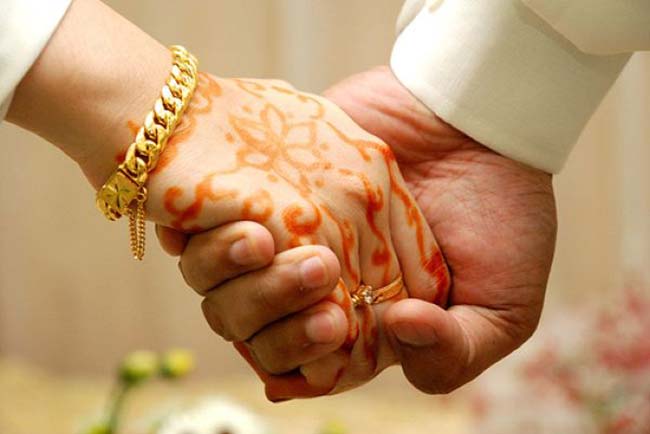A young Kashmiri aeronautical engineer was arrested and charged with waging war against the state. Five years later the court found him innocent and ordered his release but the long detention has taken a huge toll on his psyche. Shafath Hussain reports
Children are playing in the lush green meadow while Kehwa is being served to the visitors – relatives, friends and neighbours. They have come to greet Imran, who has returned after a long tim e. The environment is festive but the mood is somber. The eyes moist.
e. The environment is festive but the mood is somber. The eyes moist.
Imran Ahmad, an aeronautical engineer, had returned home after a Delhi court acquitted him of all the charges. The 29-year-old was incarcerated in Delhi’s Tihar Jail for almost five years on charges of waging war against the state.
In his home at Magam village in Kupwara district, Imran looks tired and clueless. His father introduces him to the people coming to meet him in huge numbers. “This is Imran… my son. See how this innocent was charged for waging war against India,” says his father Ghulam Rasool Kirmani, a retired school headmaster.
In the morning on Nov 15, 2006 the Special Cell of Delhi Police took him away from his residence at Dwarka, New Delhi.
“I was rather kidnapped and was kept under illegal custody for one day”, he says. On Nov 29, Imran along with another man, a resident of Sopore, was presented to the media as a prized catch and member of the Lashkar-e-Toiba militant outfit.
“You know they (media) were just mute spectators. They noted whatever they were told without asking a single question,” recalls Imran. He was charged with planning to hijack a plane and strike it on Pragati Maidan where a trade fair was going on then.
The family only came to know about their son’s arrest after their son was branded a terrorist and shown on TV. His elder brother says that the other arrested person was not known to Imran before arrest.
Imran had a modest upbringing. He studied at Jawaharlal Novadiya Vidyalya (a Central Government Run school) and later went to Rajiv Gandhi Memorial College of Aeronautical Engineering. His father says, he used up all his resources in Imran’s education. After completing his studies, Imran was offered a job in an airliner – Air Deccan. The verification of documents was in process when he was arrested. “Police (records) showed that I was arrested while going to office but they took me from my flat with my night suit on,” he says.
Imran was put in police custody for 10 days before being sent into a judicial remand. He says he was tortured in custody.
From summary beatings, to use of roller to throwing pepper laced water into eyes and nose, to giving electric shocks to private parts, Imran says, were used as torture.
Imran was sent to judicial custody after being produced before Chief Metropolitan Magistrate on Nov 27, 2006. The court processes proved cumbersome. “After every three months, we were produced before the magistrate and this was an exercise meant only to defer the case and extend the custody,” he says.
During the four years and eight months of his detention the case was transferred to and heard by seven different session’s judges. Finally, Session Judge SS Rathi of Tees Hazari court gave the verdict and acquitted him of all the charges.
Judge Rathi concluded the case within 15 days, says Imran. “He was a nice and a positive man. I can never forget him. He told me that if I was innocent nobody can convict me and if I was guilty nobody can save me.”
The decision came on May 12. He faced charges under Unlawful Activities Act under 121,122,123 IPC and 120 B criminal conspiracies.
His days of prison where he was kept alongside people charged with heinous crimes like murder and rape, were disturbingly tortuous, he says. But Imran kept his passion for reading alive.
“I did not have even basic understanding of my religion, I studied it in Jail,” says Imran. “Too much of materialism where you want everything is a curse.”
 Imran being the youngest among his siblings got all the support from his parents and elder brothers. However, Imran’s education had drained a lot of resources and the family was left with little to support him during the trial. His ill mother’s health deteriorated and his father had to borrow money.
Imran being the youngest among his siblings got all the support from his parents and elder brothers. However, Imran’s education had drained a lot of resources and the family was left with little to support him during the trial. His ill mother’s health deteriorated and his father had to borrow money.
“I sold my house along with two kanals of land to this man,” says Kirmani, pointing to one of the persons who was visiting to greet the family on Imran’s release. His mother, Sara, says, “I’m thankful to almighty Allah because there are so many people even whose whereabouts are not known.”
The villagers have always been proud about Imran. “He was the star of our village and still is”, says a local resident. However, Imran is wary of dreaming anymore. His career as an areonatucial engineer was stalled before it could take off. “Expectations always deceive,” he says.
Gulam Rasool is all praise for his friends and relatives for their help. “None from the government helped except the Jammu and Kashmir police who gave a clean chit to my son whenever required,” says Kirmani lauding IGP, Kashmir S M Sahai for his help.
Imran’s family had approached the Prime Minister and petitioned the then president APJ Abdul Kalam and President Pratibha Patil after she took over. “President Kalam took some interest but nothing happened,” says Kirmani.
Imran’s return has brought joy to the village. Everybody is coming to greet them and laud the family’s efforts to get him released. Though Imran is apparently shattered, his parents want his dreams to come true. “We still tell our son that a whole life is before him,” says Kirmani adding that the government at least should help him now.















